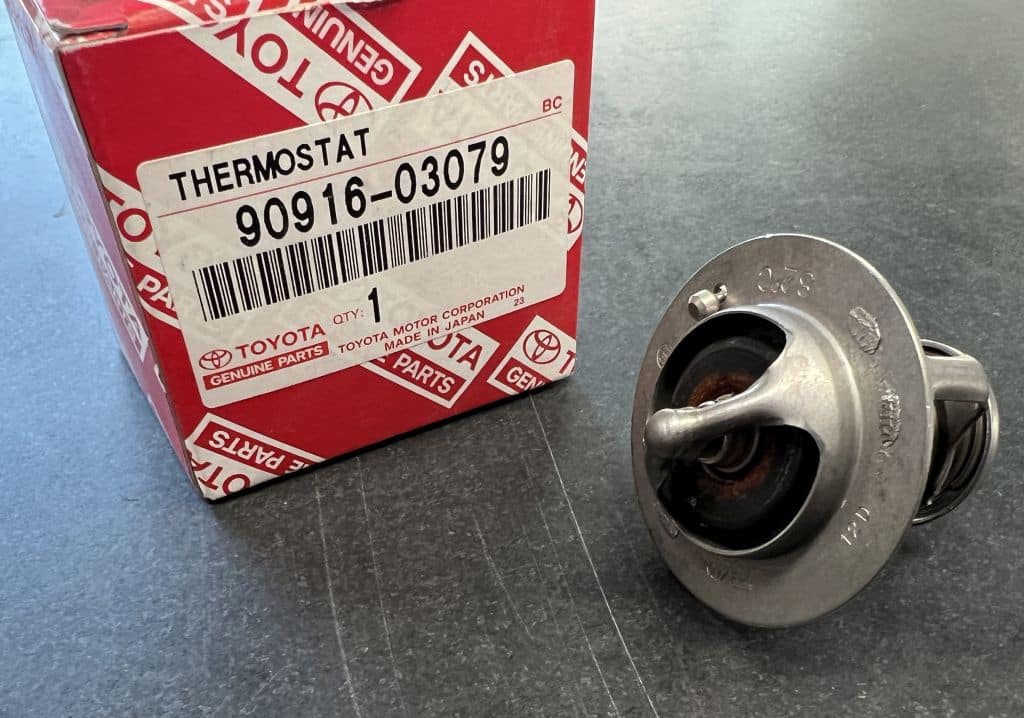Yes, an engine can survive overheating, but it can lead to significant damage if not addressed promptly. Overheating can cause warped cylinder heads, blown head gaskets, and even complete engine failure.
To prevent overheating, it’s essential to maintain proper fluid levels, check for leaks, and ensure the cooling system is functioning correctly. Ignoring or prolonging overheating issues can result in expensive repairs or the need for a complete engine replacement. Staying vigilant and addressing any signs of overheating promptly will help extend the life of your engine and prevent costly damage.
The Basics Of Engine Overheating
Engine overheating can be a serious problem that could lead to costly repairs if not addressed promptly. There are several causes of engine overheating:
- Lack of Coolant: Insufficient coolant levels can prevent the engine from properly cooling down.
- Malfunctioning Thermostat: A faulty thermostat can cause the engine to either overheat or not reach optimal temperature.
- Radiator Issues: Clogged or leaking radiators may impede the proper flow of coolant, resulting in overheating.
There are common signs that indicate an engine is overheating:
- Warning Lights: Dashboard indicators, such as the temperature warning light, may illuminate.
- Steam or Smoke: Steam rising from the engine or smoke coming from under the hood is a visible sign of overheating.
- Unusual Smells: Burning smells, often resembling a sweet or chemical odor, can be a sign of an overheated engine.
If your engine overheats, there are immediate actions you should take:
- Pulling Over: Safely pull over to the side of the road and turn off the engine.
- Allowing Engine to Cool: It’s crucial to allow the engine to cool down completely before attempting any further checks or repairs.
- Checking Coolant Levels and Hoses: Once the engine has cooled, check the coolant levels and inspect the hoses for any leaks or blockages.

Credit: www.youtube.com
Effects Of Engine Overheating On Performance
Engine overheating can have serious repercussions on its performance. One of the major consequences is damage to various engine components. The cylinder head can become warped due to the excessive heat, leading to leaks and loss of compression. Another potential issue is a cracked engine block, which can result in coolant leaks and further damage to the engine. Additionally, the head gasket can blow, causing coolant and oil to mix and leading to engine failure.
Furthermore, engine overheating can result in reduced power and efficiency. The engine may experience a loss of horsepower, resulting in a decrease in overall performance. Moreover, it can also lead to a decrease in fuel economy, as the engine has to work harder to perform its functions. This, in turn, can have an impact on emissions and the environment. Increased pollutant emissions are a direct consequence of engine overheating, which contribute to environmental degradation and air pollution.
Overall, engine overheating can cause significant damage to engine components, reduce power and efficiency, and have negative environmental consequences. It is crucial to properly maintain and monitor the engine’s temperature to prevent overheating and mitigate these detrimental effects.
Long-term Effects And Potential Repairs
Engine seizure is a serious issue that can occur as a result of engine overheating. It happens when the engine’s internal components expand vastly due to excessive heat, resulting in them seizing or locking up. This can cause significant damage to the engine and may require costly repairs.
Engine seizure can be caused by a variety of factors, including insufficient lubrication, coolant system failure, broken timing belt, or a malfunctioning oil pump. It is important to address these issues promptly to prevent engine seizure.
The costs and difficulty of repairing an overheated engine depend on the extent of the damage. In some cases, a simple engine flush and cleaning may be sufficient, while in severe cases, damaged components may need to be replaced. DIY repairs may save money, but professional help is advisable for complex repairs to ensure the best outcome.
Preventing engine damage from overheating requires regular maintenance and proper cooling system care. Regularly check for leaks, maintain proper coolant levels, and ensure the radiator is functioning optimally.
Regular maintenance includes routine oil changes, checking the cooling system, inspecting the belts and hoses, and regular engine tune-ups. This helps identify potential issues before they escalate, preventing engine damage.
Proper cooling system care involves regularly flushing and refilling the coolant, inspecting the radiator and hoses for leaks or damage, and ensuring all components are working effectively. Overheating can be prevented by maintaining a well-functioning cooling system.
When repairing an overheated engine, an engine flush and cleaning may help remove debris and deposits that could be contributing to the issue. If this doesn’t resolve the problem, damaged components such as the thermostat, water pump, or head gasket may need to be replaced.
DIY repairs can be cost-effective, but they may not guarantee the best results, particularly for complex engine issues. Seeking professional help ensures that repairs are done correctly and minimizes the risk of further damage.
It is advisable to seek professional assistance when the issue is beyond your knowledge or the repairs involve intricate mechanics. This saves time, prevents further damage, and ensures the best chance of restoring the engine’s functionality.
DIY repairs can save money, offer a sense of accomplishment, and allow for a hands-on approach. However, there are risks involved if the repairs are not done correctly, leading to further damage and potentially higher costs in the long run.
Conclusion
Overall, the question of whether an engine can survive overheating depends on various factors. Adequate maintenance, regular check-ups, and prompt action when signs of overheating arise can greatly increase the chances of survival. It is crucial to monitor temperature levels and address any issues promptly to prevent extensive damage.
By understanding the causes, symptoms, and preventative measures, one can mitigate the risks and ensure the longevity of their engine. Remember, prevention is always better than repair when it comes to engine overheating.

